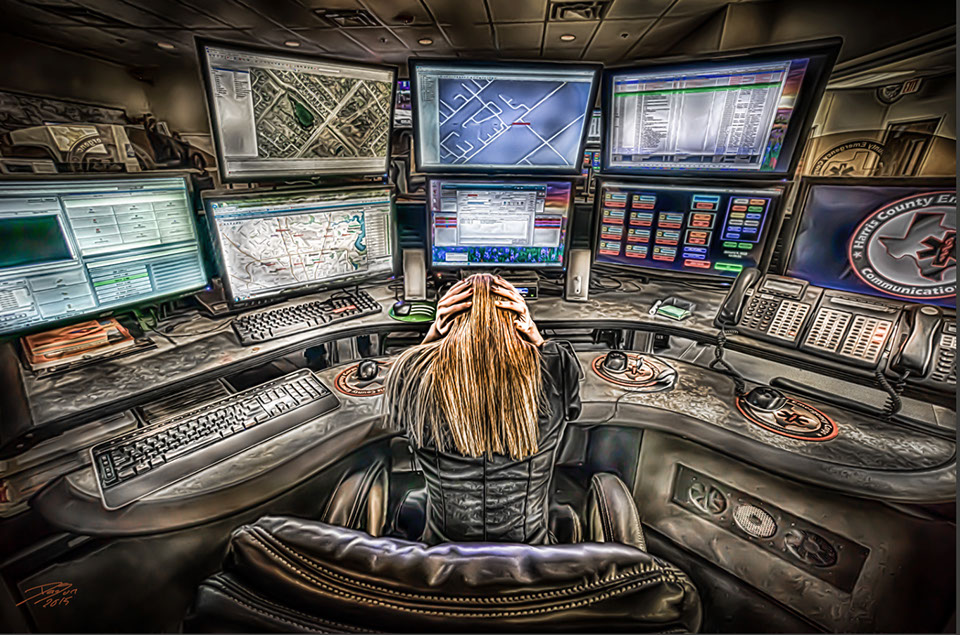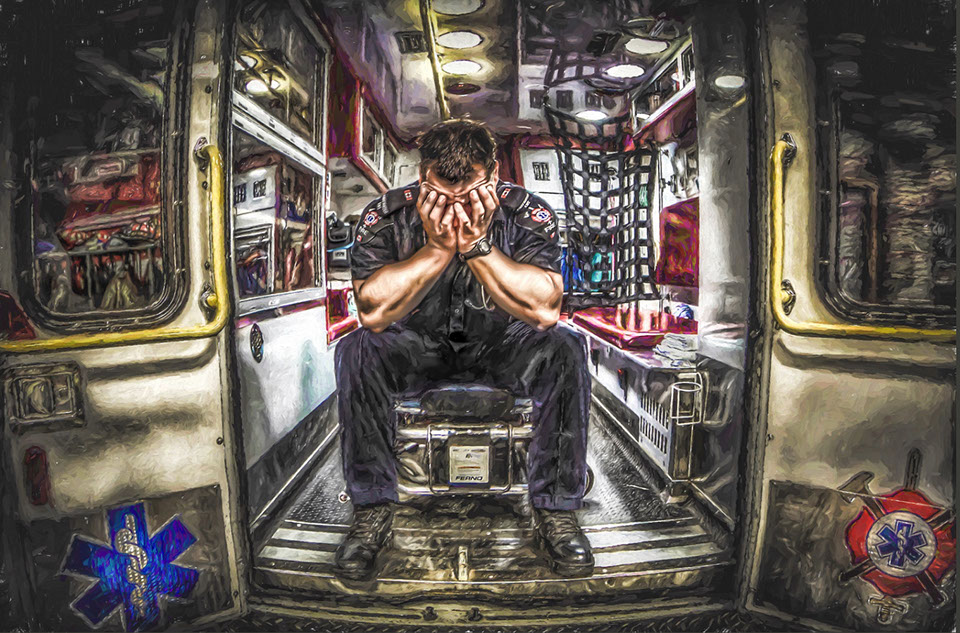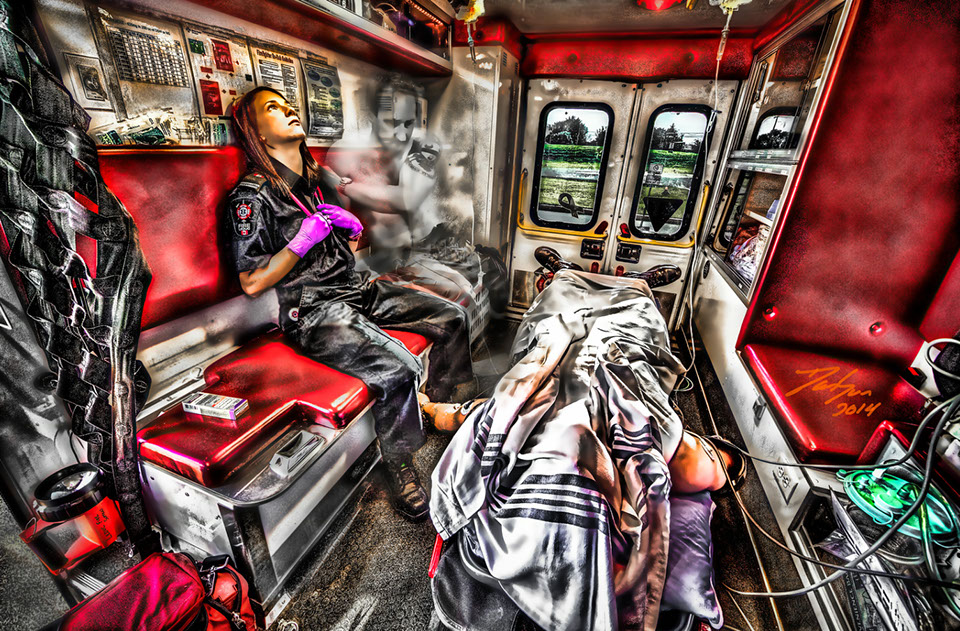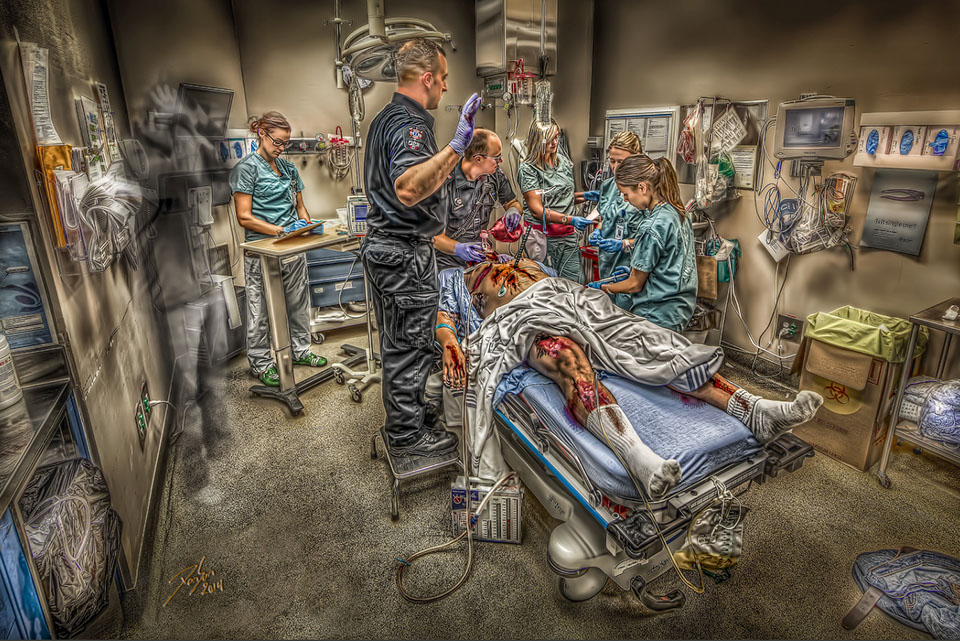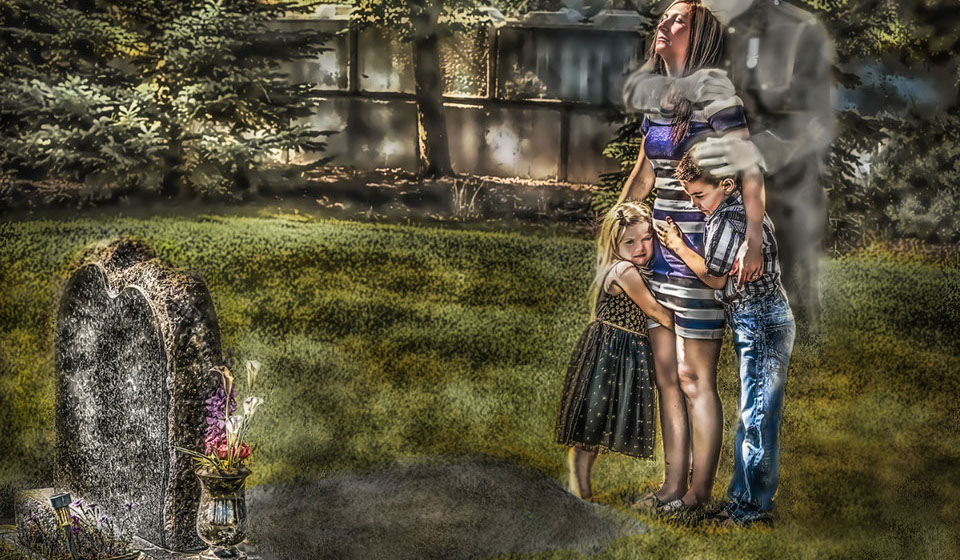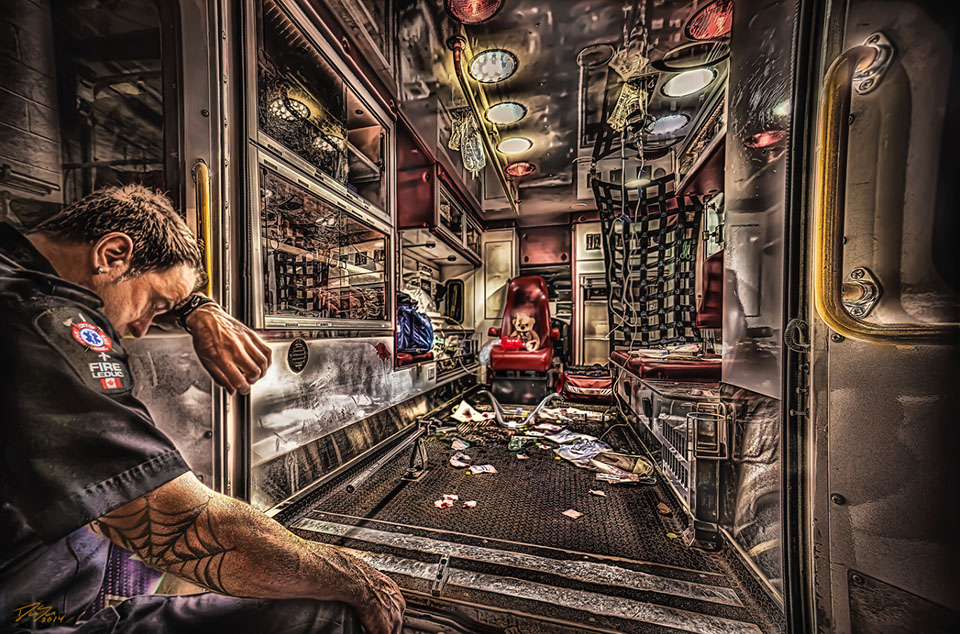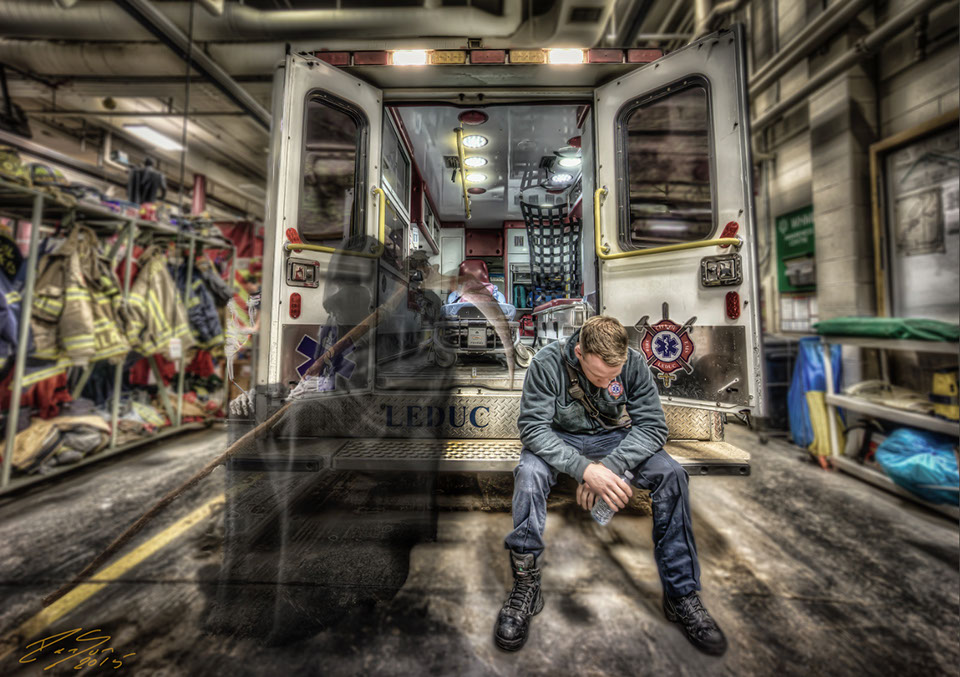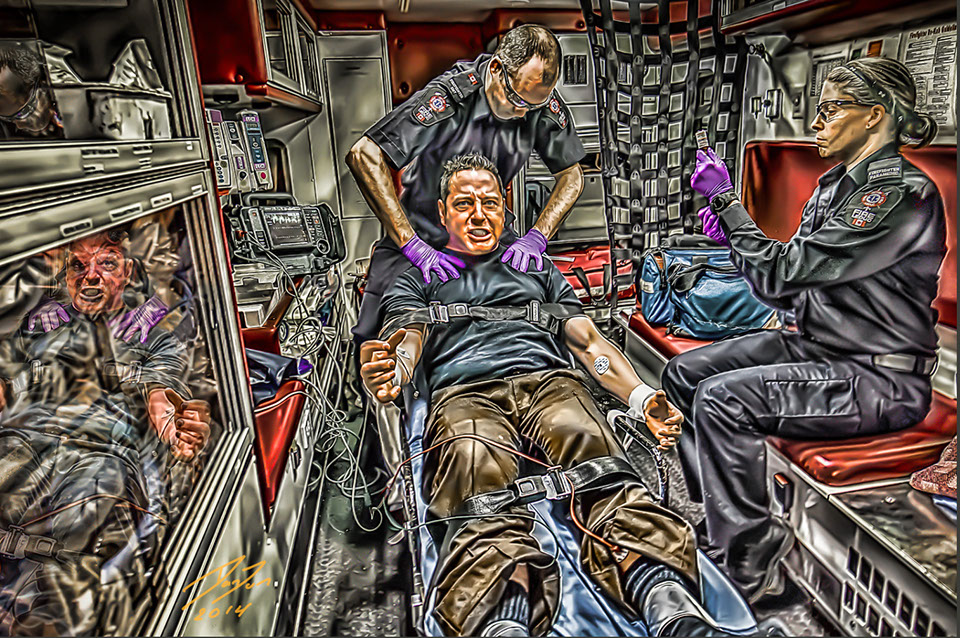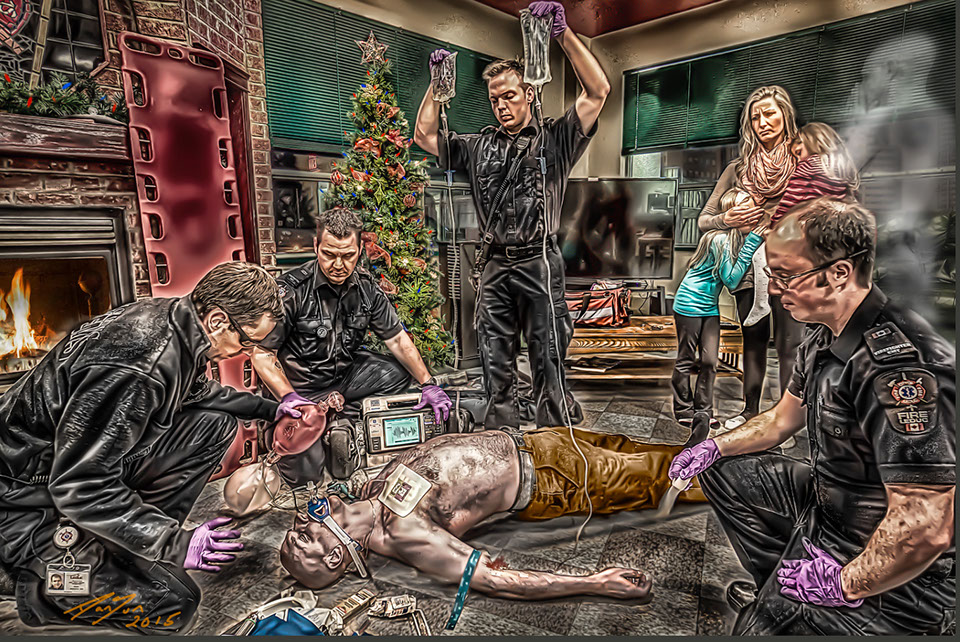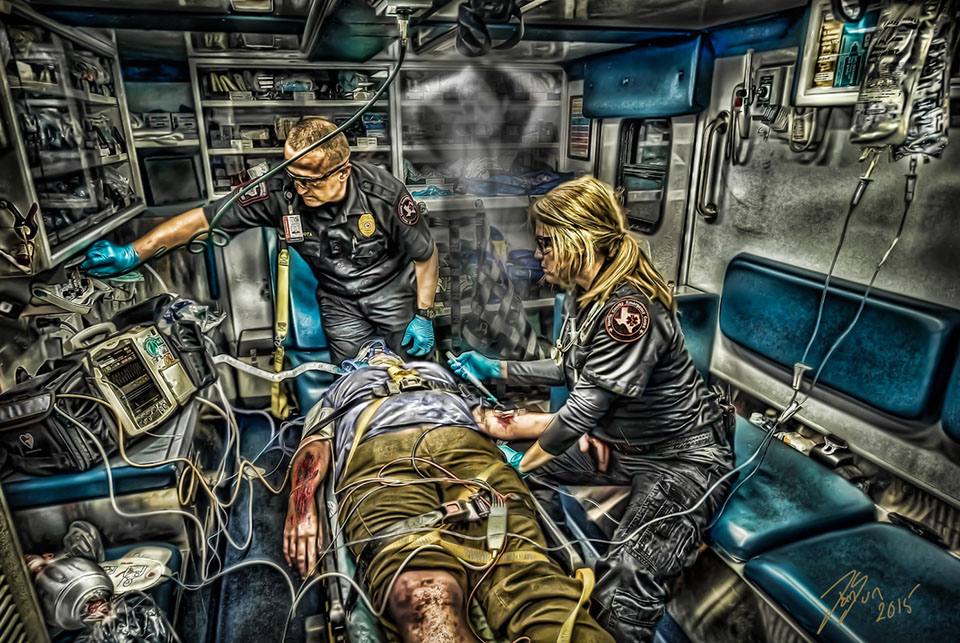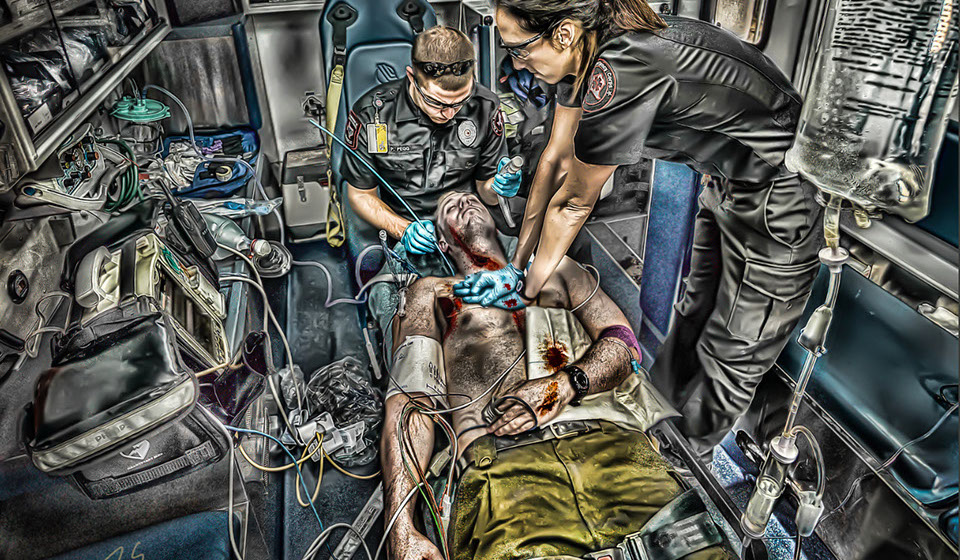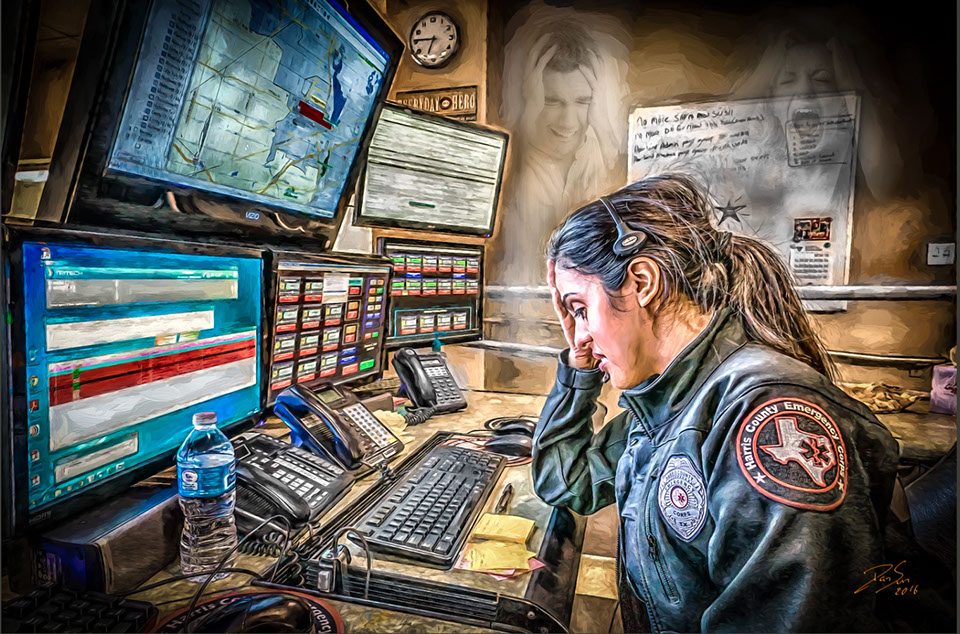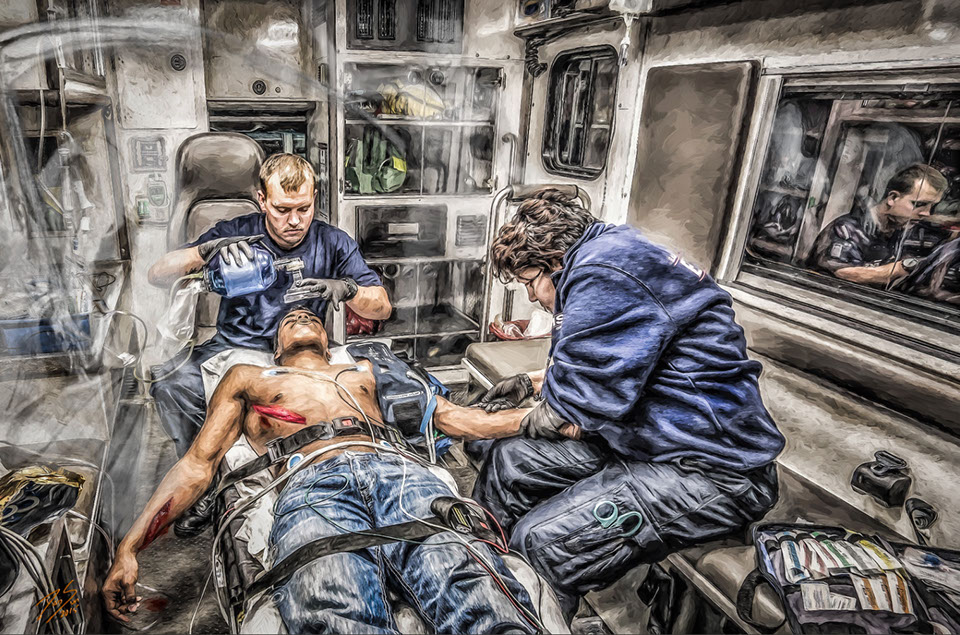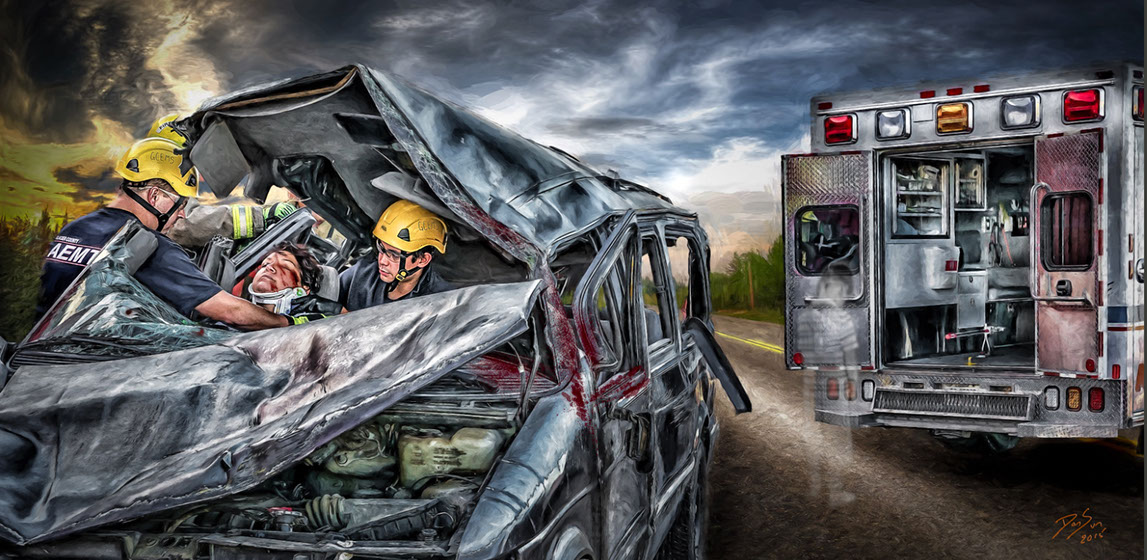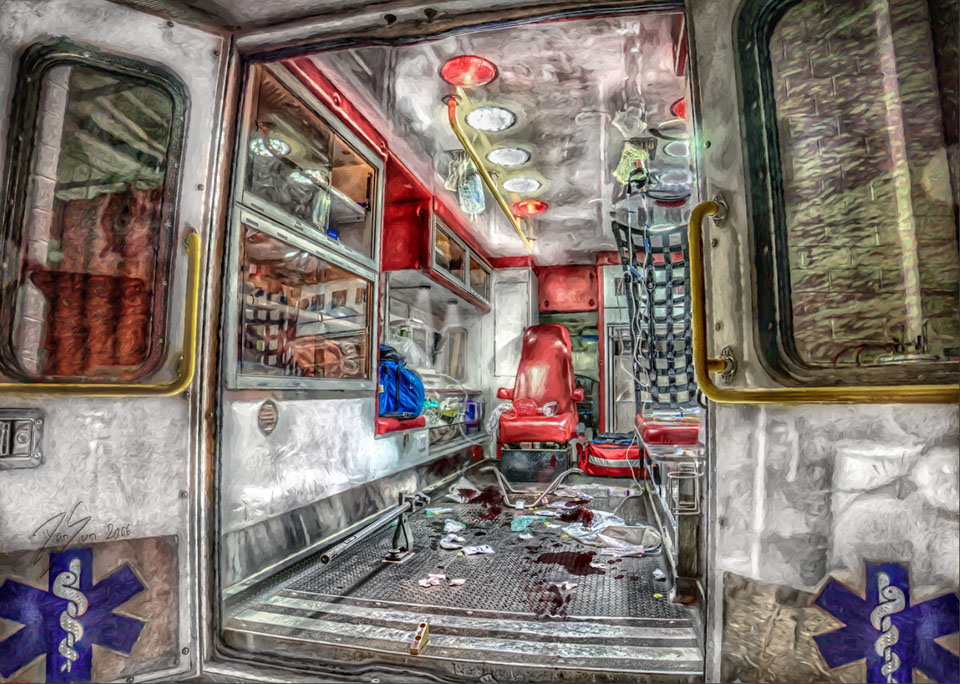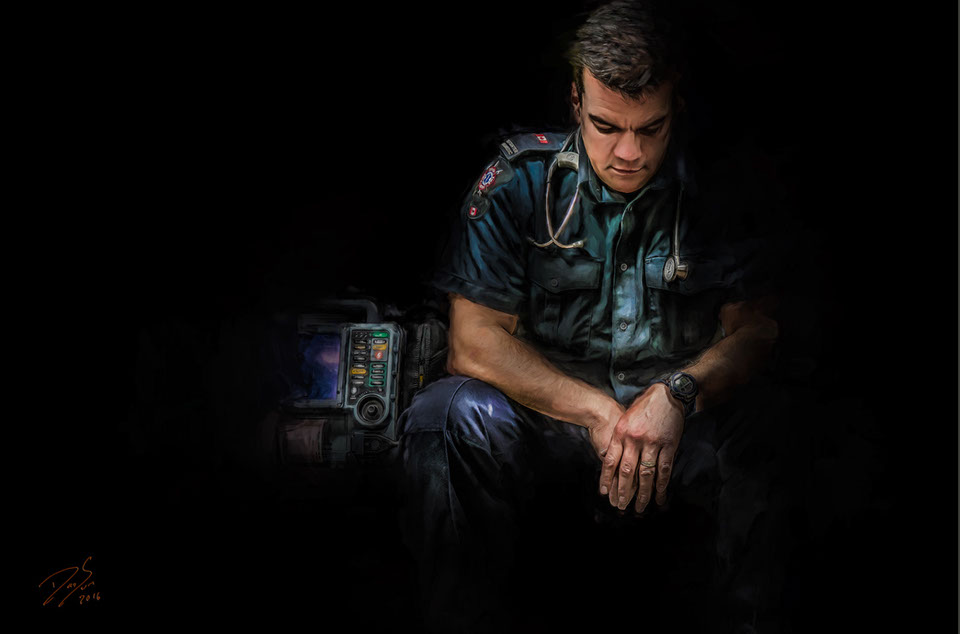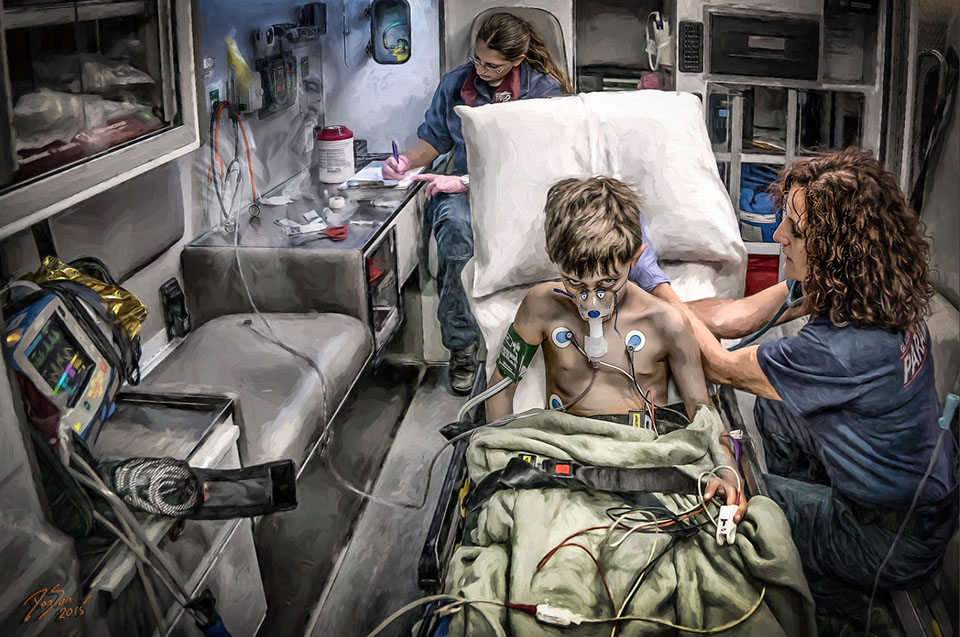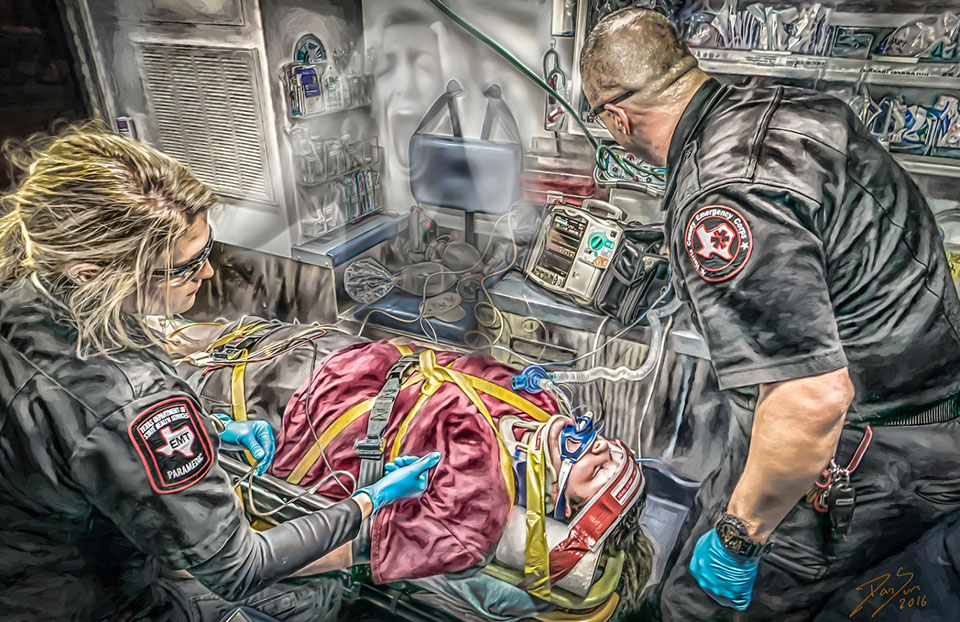Suicide: It is said to be a permanent solution to a temporary problem.
But is the problem temporary? NO
Military Combat Post Traumatic Stress Disorder (PTSD)…
Firefighters Are Not Immune To PTSD-
Different But Often Similar
Article by: Elyse Weintraub Brown
I decided to write this article to share my family’s story so that others will not suffer the same tragedy as our family did on June 15, 2007. It was both, the worst and longest day of my entire life.
My husband, Ed Brown, was an apparatus mechanic at Support Services. He’s worked on many of the Engines and Rescues that Palm Beach County Fire Rescue has in its fleet. On the surface Ed was funny and got along great with his colleagues at the Shop. He took tremendous pride in his work. Who knew that deep inside he suffered great pain and agony keeping secrets from everyone- even me. One of the many things that I have learned since his death is that people who have served in the military, as he did, have secrets. They are trained and programmed to acquire only the very basic of information to carry out their mission. The security of this information is a life and death matter. When soldiers return to civilian life they maintain their secrecy refusing to share details about their experiences and/or how it has really affected them as a person. Sometimes they don’t even realize nor understand that it has changed them. I was told that when Ed returned from serving in the Army in 1994 that he was different. He was only 19 years old and in a war called Desert Storm: Operation Desert Shield. I met him in 1998. The only experience that Ed shared with me about his tour was this: Have you ever seen the movie Courage Under Fire? That’s the movie with Denzel Washington where the tanks were in formation. They accidentally shot one of their own tanks because they thought that an enemy tank had breached their circle and communication problems prevented them from verifying that fact. Well, that was Ed’s unit. Those were his friends that got killed and his friends that did the killing. He was there when it happened in real life. This is the only detail that I know about his tour. It’s enough information though for anyone to realize that he had dark memories and has experienced things that most people only see in the movies and video games. The fact is that our soldiers are dying on a daily basis. Those that haven’t died and come back home, come back wounded physically (which is visible) and even worse mentally (which is not visible other than behavioral). I am here to shed some light on the behavioral component of a soldier’s mental disability.
Many veterans commit suicide because they can’t live with their secrets and gloomy memories and the things that they have seen and done. They can’t bear the fact that their comrades are still dying-unnecessarily. The Post printed a brief article on August 16th 2007 about the current suicide rates among Army soldiers and how last year it reached its peak in 26 years and “more than a quarter did so while serving in Iraq and Afghanistan…”. It also goes on to say “…there were 99 confirmed suicides among active duty soldiers during 2006, up from 88 the previous year and the highest since the 102 suicides in 1991 at the time of the Persian Gulf War.” This number is way too many; and to think this report only represents one branch of the military.
Another real fact is that these men and women, when they come home to their families-they can’t function normally. (The same goes for firefighters after intense emergency calls.) In other words, it is impossible for them to lead a truly happy life. They are anxious, stressed out at home, depressed, angry, have hair trigger
reactions to just about everything around them and when they get sad…they get REALLY sad. When they get angry…they get REALLY angry and even unusually physical with loved ones and confrontational with all others. Sometimes they just sit there completely tuned out from the rest of the world. Furthermore, the triggers that remind firefighters and soldiers of their experiences appear unexpectedly and can change their mood in a flash-negatively. For soldiers, watching the news and listening to radio reports of the current war situation, and firefighters responding to 911 calls can just cause them to become more introverted. Even the simplest of everyday family matters seems complicated and exaggerated creating stress in marriages and home life. Loud noises and visuals of death, injuries, and destruction triggers negative behavior. As their condition deteriorates they gradually withdraw from personal hobbies and activities with friends and family.
.
Friends, spouses, and other family members take it personally because they can’t handle the conflict and stress at home so they take drastic measures like filing for divorce or ignoring the individual thinking the problem will go away. Make no mistake about it; it doesn’t just go away. I threatened divorce and after returning home within 30 minutes of phone communication, I found Ed hanging from a self made noose by our gym equipment in the garage. I think what makes his suicide even harder for me to accept is the fact that he wasn’t suspended very high and all he had to do- if he wanted to- was stand up.
I wish someone had told me that it could happen- again. He attempted suicide in early 2003 shortly after the 2nd Gulf war started and I found out, after his death, that he had made another attempt before that when he finished his tour with the Army sometime after 1994. Each attempt became worse and more desperate until his 3rd and final attempt. As his Mom tells the story (which I was never told about until he died), his first attempt was when he held a gun to his head and called his Mom on the phone to tell her he was ending his life. For his second attempt in 2003, shortly after the 2nd Gulf War started, he overdosed on pills when I was home in another room. The third attempt speaks for itself- even with a way out of the situation- he chose not to take it
After his (second) attempt in 2003 he was hospitalized and was assigned to a therapist who diagnosed him with combat related PTSD; which was her specialty. After making some great progress we were relieved to have a diagnosis to his illness and expected a long-term therapeutic relationship with this psychologist. Then she accepted a job offer in another State a couple of months later and dumped Ed’s file onto the desk of another therapist who knew nothing about his disorder. Meanwhile, when Ed went to get processed at the VA hospital for mental health care, they denied him classifying him as a Priority 8G that meant he didn’t qualify for help from the VA. You can see a pattern of one disappointment after another. It was tough just to get Ed to pursue any help and to really accept the fact that he needed it. Any attempt at getting professional help would turn out to be temporary because he would go for a few sessions and then stop with one excuse or another. This is where the tough love of friends and family members comes into play. All I can say is- DON’T GIVE UP ON THEM and DON’T LET THEM GIVE UP! They need you to stand by them while they get treated for this illness on a continuous basis. It is indeed an illness. Military PTSD, and even fire/EMS related PTSD, is disguised deeply by behavioral changes and abnormalities that can make the common person believe- WOW! He or she has issues!They are not issues-these people have an illness. Please seek help! If medication is prescribed, monitor their progress very closely and communicate with all of the health care providers involved in your family network. Become educated on the medication and be cautious because some prescriptions will actually worsen their condition and they can become even more at risk of suicide as was the situation with Ed
My hope is that anyone reading this whether you are a firefighter, military veteran, enlisted soldier, reservist, or friend or relative of one- be aware of these characteristics. It is a real problem and professional help is a necessity to live in society. Seek help from someone who specializes in fire/EMS or military/combat related PTSD. This condition doesn’t ever go away. In fact, it gets progressively worse if untreated. It can mean the difference between life and death.
My family will never be the same. My parents loved Ed as if he was their own son. Ed was actually closer to my parents than his own. My 5 y/o son, Hunter, has accepted that his Daddy is never coming back but he does refer to him almost daily with a story or memory. My 3 y/o daughter, Amber Shea, refuses to accept that her Daddy is not coming back and gets very angry with me when I try to tell her otherwise. I am left alone as a single parent now and worst of all doubting everything that I did and did not do on June 15th 2007 and our 9 years together-feeling very guilty about his death. Thinking if I only knew…
Check out http://www.ptsdsupport.net/emt.html for more information on firefighter and military Post Traumatic Stress Disorder.
Now that you know…please do something about it. I hope that my family’s story can save other precious lives and families from extreme despair. Our soldiers sacrifice everything for us…let’s not give up on them.
The images in this site are from www.dansunphotos.com. His work is amazing and captures the torment many in our field feel. Copies of his art can be purchased through his site.
Content from this site was obtained from our sister site
